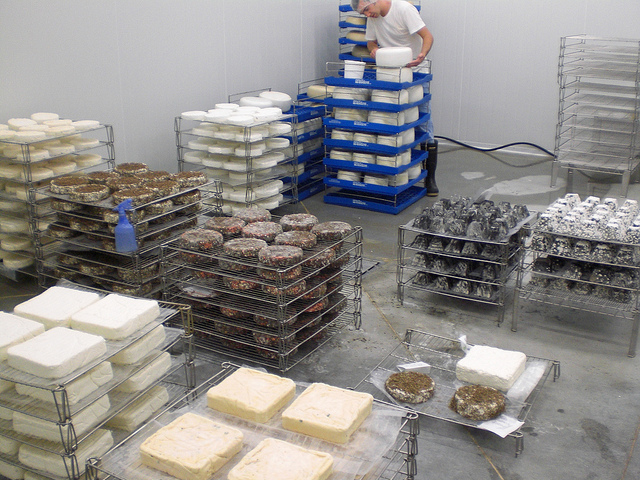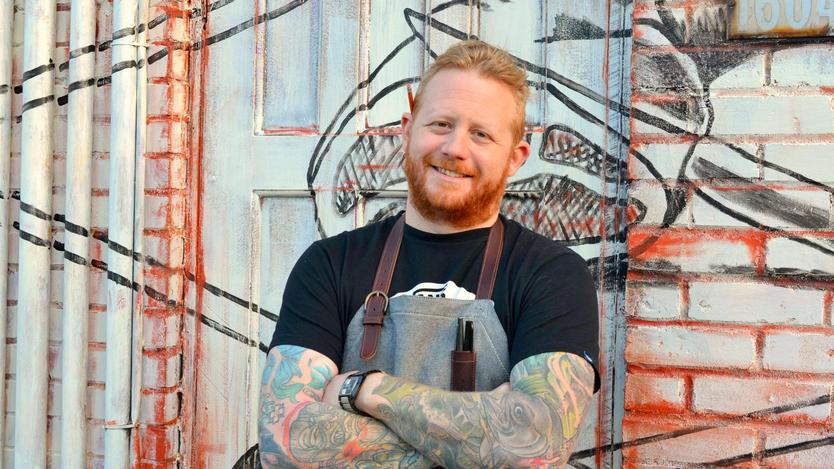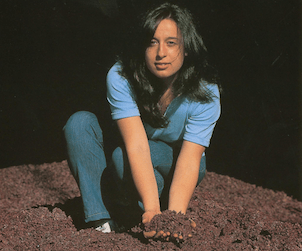By Kylie Meyermann
Cheese is a food celebrated and revered by most Canadians. While many countries have relished in it’s intoxicating essence for centuries, it wasn’t until the 1980’s that Canadians truly dabbled with and fell in love with farmstead cheese. Cheese is served with most meals, morning, noon and night and is acceptable for dishes both sweet and savoury. For the former stated reasons, cheese has created its own thriving industry, mass producing the dairy phenomenon. Cheese is no longer only acquirable from a local cheesemonger, genuine DOP Parmigiano-Reggiano and Kirkham’s Lancashire are readily available to housewives shopping at any suburban grocery store. Not to confuse my tone, this is not a bad thing; but may it suggest that cheese has lost its chic sparkle? What once captivated the Roman masses and kept the trading posts alive 11,000 years ago is now a mere commodity who’s existence remains a common mystery to most people.
Aside from the curdling of milk, people are hopelessly confused as to what the process of cheese making entails. Ask many students approaching food for the first time and they will tell you that cheese is milk left to rot in a bath of fungus and spores. There is definitely a taught and preached recipe for making cheese. American cheese hero, Professor Frank Kosikowski created the eight basic steps for cheese making, which has since become the cheese equivalent of Darwin’s Theory of Evolution. The cutting, the cooking, the knitting and the pressing are vital cheese making steps unheard of by many cheese enthusiasts. Followed by aging and the affinage (a vital step that is responsible for the creation of countless careers), is an industry with as much character and precise science as the wine industry.
Much like the wine industry, there has never been such an extreme emphasis on the importance of terroir and cheese. Shepherds tend to their herd like doting parents, endowing family names to their livestock. Sheep are grazing on rotational fields of organic feed and much of California’s free-range livestock is drinking water more pure than the drinking water filtered to the inhabitants of the Hollywood Hills. That being said, Kraft and Black Diamond have done a remarkable job of marketing their approachable and cost efficient cheeses to Canadian families, leaving many of the homestead cheeses to expire on the shelve. It has become difficult to convince Canadian mothers to shovel out extra dollars for something as unexplainable as terroir. With increasing concerns about the health and safety of the food we consume, parents are more inclined to buy the cheese adorned by the laughing cow than the cheese animated by blue veins.
For those of you unfamiliar with my writing, for the past two months I have been providing GFR with a weekly cheese report. After exhausting all of my options from my personal profile of cheese, it has become clear that I must get a deeper glimpse into the world of cheese and find out more about my favourite food. Aside from tasting cheese, the entire procedure of making, aging and selling cheese is a complete mystery to me and I know that I can’t be the only one baffled by the process.
For the following six weeks I will be embarking on an educating and illuminating journey into the cheese industry. Explore and meet the people who make our cheese, age our cheese and the people who create the rules that prohibit our favourite cheese from being sold at any Canadian boutique. Baking, cooking and presenting cheese also requires impeccable skill that I hope to learn about and report back to you in the coming weeks. There is more to cheese than the colour of the rind or the heritage of pumped milk, (although, both subjects I hope to learn about), and I can only hope that in the coming I will no longer be an ill-informed cheese lover.
Start eating cheese and exercising your palate, class begins next week.
 Kylie Meyermann’s love affair with cheese began while she was interning at Good Food Revolution. She has since become obsessed with wine and cheese Follow Kylie on twitter @Kylieswines.
Kylie Meyermann’s love affair with cheese began while she was interning at Good Food Revolution. She has since become obsessed with wine and cheese Follow Kylie on twitter @Kylieswines.








